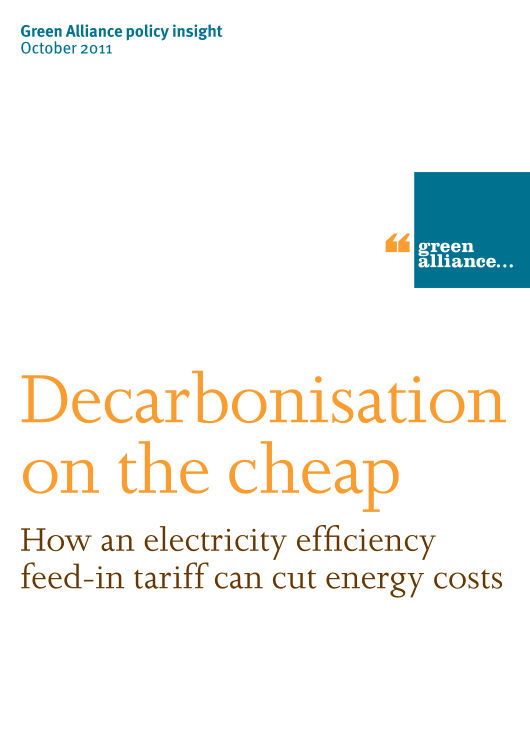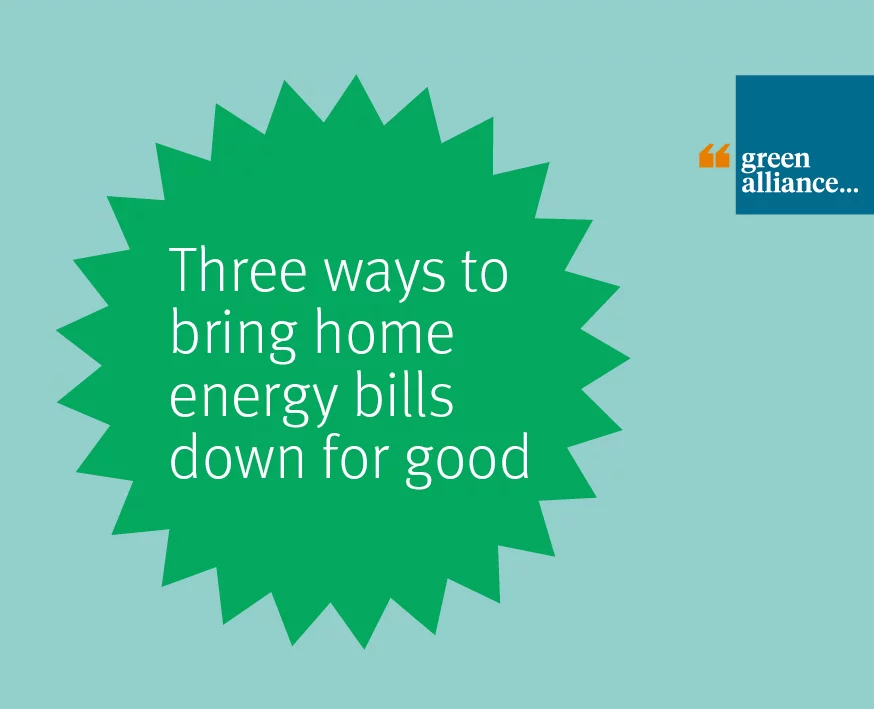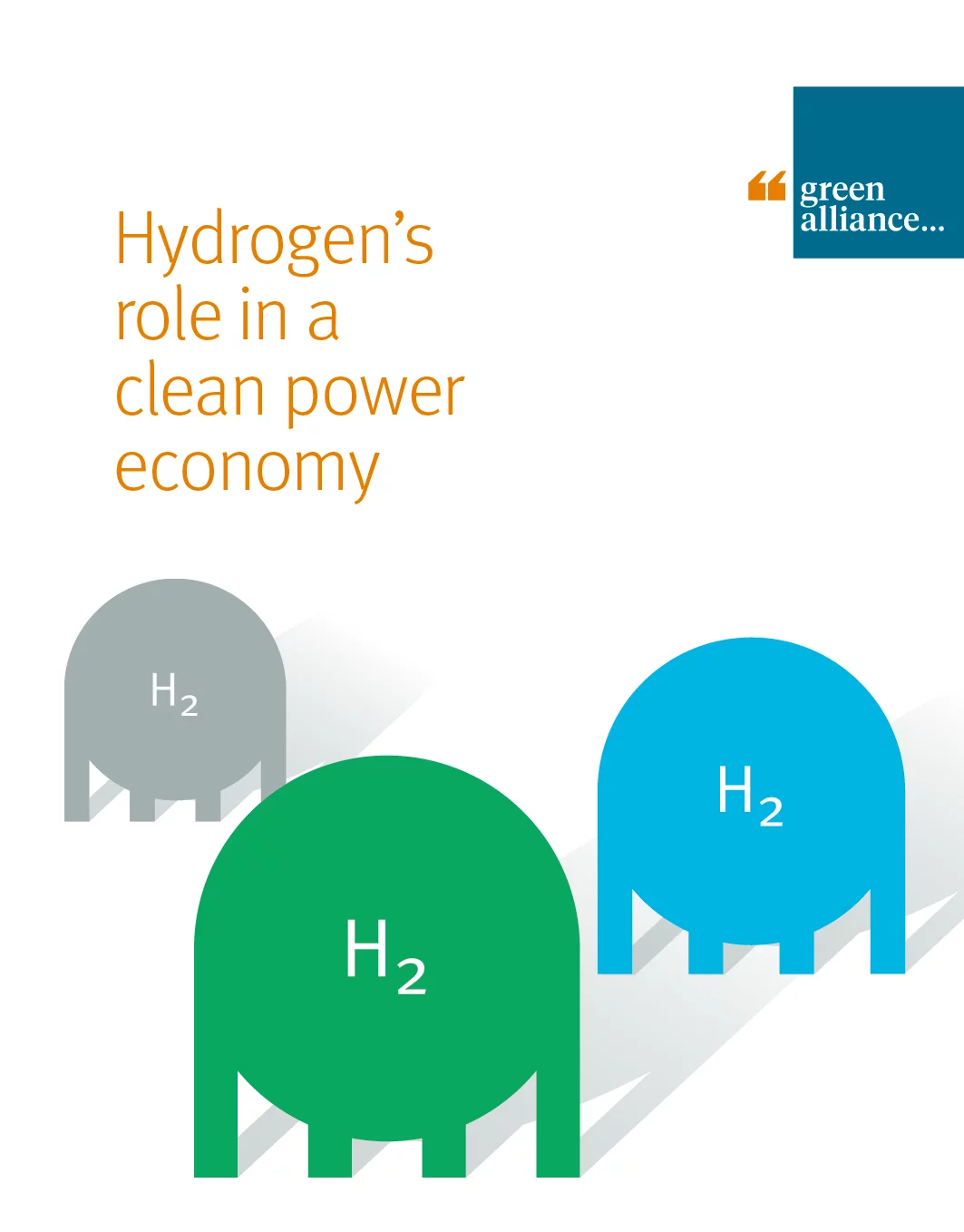Decarbonisation on the cheap – how an electricity efficiency feed-in tariff can cut energy costs
Download
Date:
Summary
Reducing demand for electricity is a cost-effective part of decarbonising our economy, but it won’t happen on its own. Even though saving energy saves money, electricity consumers have persistently not reduced their demand, even when it is economically rational to do so. The expectation that increasing energy prices will change this ignores the behavioural, financial, and policy barriers which have prevented energy saving in the past.
Indeed, rising electricity prices are likely to have a negative impact on decarbonisation by reducing public support for funding the transition to low carbon power, which is widely accepted as the first step in decarbonising the wider economy. The government’s tacit bargain with the electorate is that decarbonisation policies which raise the unit cost of energy will be offset by demand reduction policies such as the Green Deal, yielding a net equal cost to consumers.
This paper shows that current policies will not go far enough to encourage people to reduce their electricity use, meaning bills will rise more than they need to. However, our analysis demonstrates how a drive to encourage greater demand reduction could avoid future expenditure of up to £125 billion on new low carbon generation and save consumers at least £35 billion.
Dustin Benton
978-1-905869-48-0

